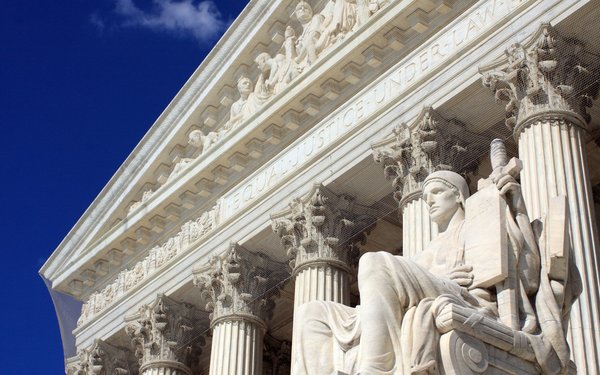
A closely
divided Supreme Court Thursday dealt a setback to the Trump administration's attempt to ask census respondents whether they are citizens.
The 5-4 ruling sends the matter back to a trial judge
for further proceedings. It's not yet clear whether those proceedings will conclude before the deadline for the 2020 census to be printed.
President Trump responded to news of the ruling by
saying he wants to delay the census until legal questions surrounding the citizenship question are resolved.
“Seems totally ridiculous that our government, and indeed Country, cannot ask
a basic question of Citizenship in a very expensive, detailed and important Census, in this case for 2020,” Trump wrote on Twitter. “I have asked the lawyers if they can delay the Census, no matter how long, until the United States Supreme
Court is given additional information from which it can make a final and decisive decision on this very critical matter.”
advertisement
advertisement
Last year, Commerce Secretary Wilbur Ross said the 2020 census
would include a question about citizenship. But soon after Ross's decision, three different federal district court judges blocked the question.
One of the judges who ruled against the Commerce
Department cited a Census Bureau estimate that asking people about their citizenship would depress response rates in homes with non-citizens by more than 5%, compared to the 2010 census.
The
Trump administration appealed directly to the Supreme Court, which heard arguments in April.
The Supreme Court ruled Friday that the Commerce Department didn't adequately justify its decision
to include the question, stating that Ross's stated explanation was pretextual.
Ross said he wanted to ask people about their citizenship in order to enforce the Voting Rights Act.
But
the Supreme Court didn't accept that rationale.
“The evidence tells a story that does not match the explanation the Secretary gave for his decision,” Chief Justice John Roberts
wrote for the majority.
“The record shows that the Secretary began taking steps to reinstate a citizenship question about a week into his tenure, but it contains no hint that he was
considering VRA enforcement in connection with that project,” Roberts wrote. “We cannot ignore the disconnect between the decision made and the explanation given.”
The major
advertising industry groups said last year that
they objected to the citizenship question.
“We are concerned that the addition of a citizenship question would depress response among both non-citizens and their families (even
if family members are indeed citizens),” the CEOs of the American Association of Advertising Agencies, American Advertising Federation, Association of National Advertisers, and Advertising
Research Foundation wrote in a jointly signed letter sent to the Commerce Department last August.
Ride-sharing company Uber, online glasses seller Warby Parker, the Los Angeles Chamber of
Commerce and Nielsen are among a host of companies and business organizations that urged the Supreme Court to block the citizenship question. They argued the
question will depress response rates, which will harm businesses that rely on census data for marketing and advertising product development.
Nielsen also said in a friend-of-the-court brief
that it uses census data in its media measurement techniques. “The addition of a question to the census that will reduce the census’s accuracy will have a lasting and negative impact on
the operations of the largest American consumer product manufacturers, retailers, media, and marketing businesses,” the company wrote last month.